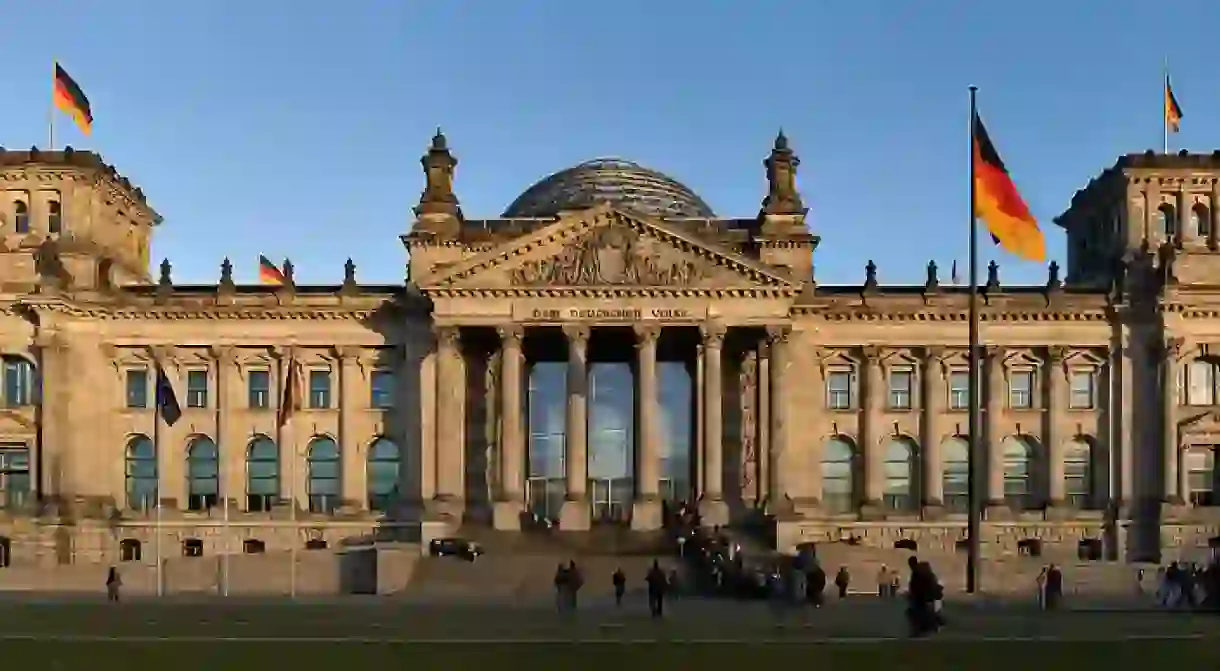Best Berlin Slang Words Worth Knowing

Germany’s largest city is home to its own dialect and accent — so what are some of these words that can be overheard in Berlin, and what do they mean? Here we’ve compiled a list of the best examples Berlin slang.

“Ick”, not “ich”
Ich, which means I, is not pronounced ‘ish’ or ‘eeysh’ as it is in other parts of Germany; in Berlin, the locals pronounce it more like ‘ick.’ This is something that is often seen on postcards and other memorabilia from Berlin, as it is the most defining part of the Berlin dialect.

“Kiez”
Kiez is a slang word used often in Berlin for ‘neighborhood.’ This word is important for Berlin, because the city has so many different neighborhoods that are all very unique in their own aspects. Instead of using Stadtviertel, like other German cities would, Berliners say Kiez.
“Geil”
Geil is an important word to learn and not put into a translate app. This word is often heard in Berlin and means something along the lines of ‘cool’ or ‘nice,’ not sexually aroused, which is the direct translation. So if you hear someone say ‘supergeil,’ it is not something inappropriate. In fact, national supermarket chain Edeka scored a surprise viral hit with an ad campaign based solely around the ambiguity of the word geil.
“Paletti”
Alles paletti means that everything is okay and is an expression that will only be heard in Berlin. While German natives from across the country will tell you that “Alles ist OK” or “in Ordnung”, the Berliners set themselves apart with their preference for paletti.

“Schrippe”
When speaking to Germans abroad, they will often speak about how they miss the bread from their country. Bread, which is an important part of Germany’s culture, has been given its own name in Berlin. So instead of asking for Brötchen at the baker, in Berlin locals ask for a Schrippe, and usually lots of them too.
“Plärren”
Hopefully this is a word that is not used too often, but instead of using weinen, the verb to cry, plärren is more commonly used in the Hauptstadt.
“Kotti”, “Görli”, “F’Shain” and “Xberg”
These words are all abbreviations for the following locations in Berlin: Kottbuser Tor, Görlitzer Park, Friedrichshain and Kreuzberg. The German word Kreuz, from which Kreuzberg is formed, is the translation for cross, which explains the X. This is something that could easily throw off any newcomers and non-German speakers. So instead of Googling these words and finding no answer, it is best to become familiar with the Kiez slang.
“Späti”
This is one of the most important words to know in Berlin. Spätis, which translates to ‘late,’ are corner stores that are ubiquitous around the city. This word is vital to know and use when living in Berlin. The Spätis, which are open on Sundays, are the perfect pit stop to grab a ‘wegbier’, or a beer to go, which is a classic in Berlin in the summer months.
“Bulette”
If you associated meatballs with Sweden, know that they are also a thing in Berlin as well, albeit the case that here they are called Bulette. Apart from meaning meatball, Ran an de Buletten is a Berlinish expression meaning ‘Let’s go!’













